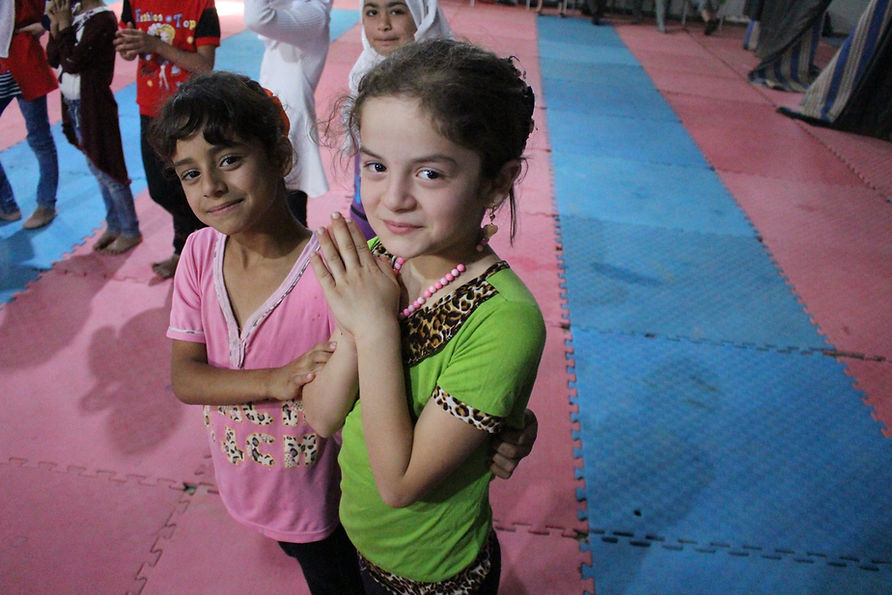SUMMER COURSES | PUBLICATIONS | NEWS | CONTACT | NEWSLETTER
Intercultural Coaching
Performative techniques for dialogue
Duration
11.2023 - 12.2024
Cost
4500.- CHF
Credits
10 ECTS
Language
ITA
Registration deadline
13.10.2023
Responsible
Alessandra D'Angelo
Daniel Bausch

Targets
-
Working with asylum seekers, refugees, and other individuals on theatrical communication techniques for personal development
-
Development of "lateral thinking"
-
Developing physical awareness, how the body moves through space and how it interacts with others, fostering communication that transverses linguistic barriers
-
Personal development
-
Broadening of self-awareness
-
Active listening techniques
-
Identification of unique talents and tools for identifying the talents of asylum seekers and refugees
-
Storytelling techniques that allow artists to give meaning and value to what they communicate
-
Problem solving techniques directly derived from theatrical improvisation
To whom it is addressed
The CAS is aimed at working with specialists in the social sector: job coaches, case managers, social consultants, trainers, animators, educators, psychologists, social workers, cultural mediators and teachers of integration but is also open to individuals who, in their private lives, are facing similar situations and wish to enrich their skills, opening up to new unconventional forms of communication.
Methodology
The CAS is an innovative program that aims to create an effective dialogue tool for social workers who wish to communicate with non-Italian-speaking migrants in the Ticino region. This course offers basic theatrical skills, cultural sensitivity and fundamental communication tools to create an inclusive environment in which migrants and specialists can interact, share stories and develop a sense of mutual belonging.
The course provides a solid theoretical and practical basis to promote an authentic and meaningful dialogue between workers and migrants, overcoming language and cultural barriers.
Through a combination of theatrical exercises, role-playing and creative activities, the CAS encourages specialists to develop their cultural awareness and acquire communication skills that enable them to create a welcoming and inclusive environment. Practitioners will learn to use body language, verbal and non-verbal expressiveness, as well as to develop the ability to empathic listening and skills and an increased capacity for mutual understanding.
The course also addresses issues related to cultural diversity and the specific challenges that migrants can face in the Ticino social context of Ticino. Through the development of "lateral thinking", "problem solving" techniques, the exchange of experiences, the sharing of stories and the promotion of empathy, specialists will be able to create an environment in which migrants and operators will feel welcomed, respected and encouraged to express themselves freely.
The CAS represents a unique opportunity for those who wish to broaden their understanding of intercultural dynamics and improve their skills in communication with migrants. Participants will be led to explore new perspectives, to connect with others in an authentically way and to promote positive change in Ticinese society through the power of art and inclusive dialogue.
Duration and calendar
The individual modules are organised in such a way that they can be reconciled with any work commitments. The DAC hours are specified in the calendar.
Calendar
25 November 2023, at the Accademia Dimitri in Verscio | from 10.00 to 18.00
From December 2023 the meetings are held one weekend a month, Friday and Saturday, at the Red Cross in Lugano. On Friday the scheduled time is from 14 to 17, while on Saturday it is from 10 to 18.
The dates:
-
15 and 16 December 2023
-
26 and 27 January 2024
-
23 and 24 February 2024
-
22 and 23 March 2024
-
19 and 20 April 2024
-
24 and 25 May 2024
-
7 and 8 June 2024
-
30 and 31 August 2024
-
27 and 28 September 2024
-
25 and 26 October 2024
From 11 to 15 November 2024 a residential meeting is planned (more information will follow)
Finally, by December, individual interviews will be held on the thesis paper.








